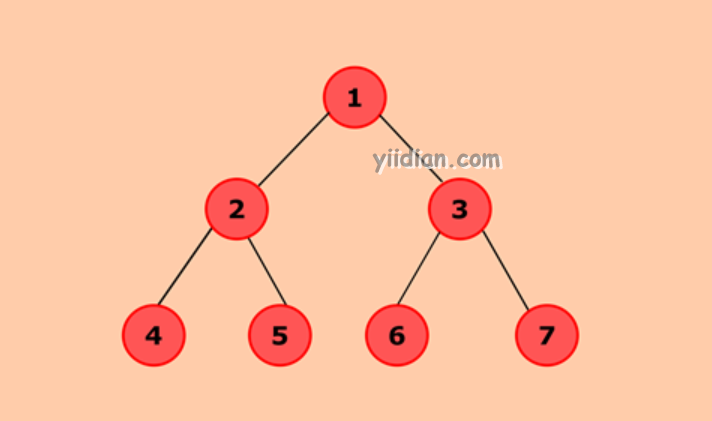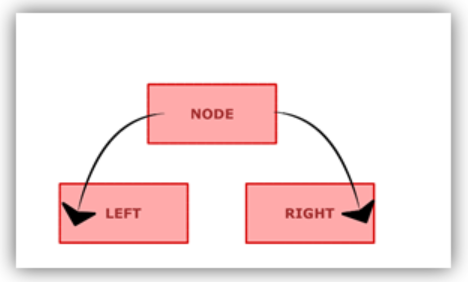使用链表实现二叉树的Java程序
1 简介
在此程序中,我们需要通过插入节点并按顺序显示节点来创建二叉树。典型的二叉树可以表示如下:

在二叉树中,每个节点最多可以有两个孩子。每个节点可以有零个,一个或两个孩子。二进制树中的每个节点都包含以下信息:

数据表示存储在节点的值。
Left表示指向左孩子的指针。
Right表示指向正确子项的指针。
2 算法思路
定义具有三个属性的Node类,即:左和右数据。在此,左代表节点的左子节点,右代表节点的右子节点。
- 创建节点时,数据将传递到该节点的data属性,并且左右都将设置为null。
- 定义另一个具有属性根的类。
- 根代表树的根节点,并将其初始化为null。
- 它检查根是否为空,这意味着树为空。它将新节点添加为根节点。
- 否则,它将把root添加到队列中。
- 变量节点代表当前节点。
- 首先,它检查节点是否具有左子节点和右子节点。如果是,它将两个节点都添加到队列中。
- 如果不存在左子节点,则它将新节点添加为左子节点。
- 如果存在左侧,则它将新节点添加为右侧子级。
- 它遍历整个树,然后打印出左节点,然后打印节点,然后打印右节点。
3 程序实现
/**
* 一点教程网: http://www.yiidian.com
*/
public class BinarySearchTree {
//Represent the node of binary tree
public static class Node{
int data;
Node left;
Node right;
public Node(int data){
//Assign data to the new node, set left and right children to null
this.data = data;
this.left = null;
this.right = null;
}
}
//Represent the root of binary tree
public Node root;
public BinarySearchTree(){
root = null;
}
//factorial() will calculate the factorial of given number
public int factorial(int num) {
int fact = 1;
if(num == 0)
return 1;
else {
while(num > 1) {
fact = fact * num;
num--;
}
return fact;
}
}
//numOfBST() will calculate the total number of possible BST by calculating Catalan Number for given key
public int numOfBST(int key) {
int catalanNumber = factorial(2 * key)/(factorial(key + 1) * factorial(key));
return catalanNumber;
}
public static void main(String[] args) {
BinarySearchTree bt = new BinarySearchTree();
//Display total number of possible binary search tree with key 5
System.out.println("Total number of possible Binary Search Trees with given key: " + bt.numOfBST(5));
}
}
输出结果为:
Binary tree after insertion
1
Binary tree after insertion
2 1 3
Binary tree after insertion
4 2 5 1 3
Binary tree after insertion
4 2 5 1 6 3 7
热门文章
优秀文章


